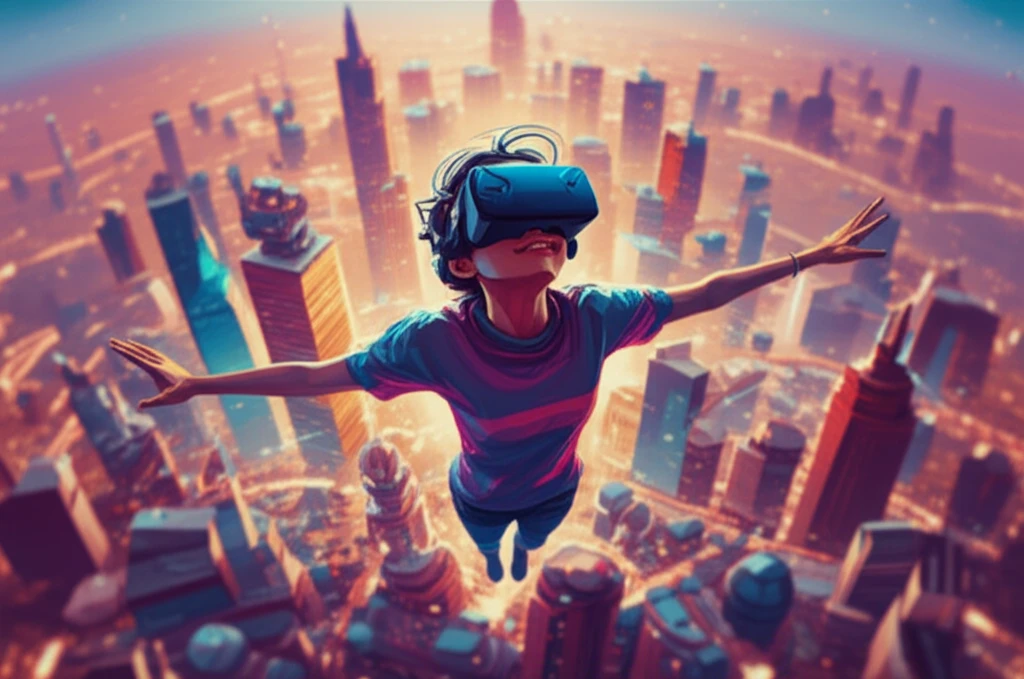
Soar to New Heights of Kindness: How Virtual Reality Superpowers Are Boosting Real-World Helping
"Discover how the simple act of 'flying' in virtual reality can unlock a surge of generosity in the real world, transforming the way we think about empathy and helping others."
Have you ever wished you could fly? The dream of soaring through the air, like Superman, is a powerful one, captivating our imaginations and embodying a sense of freedom and capability. But what if that same dream could be a catalyst for kindness? Recent research explores a fascinating connection: How virtual reality (VR), and the superpowers it can grant, are not just entertaining—they are also powerful tools that can boost our inclination to help others in the real world.
Imagine stepping into a virtual world where you can effortlessly take flight, your arms propelling you through the cityscape. This isn't just about gaming or escapism; it's about the immersive power of VR to change how we perceive ourselves and interact with the world. This technology allows us to embody avatars with incredible abilities and, in turn, can subtly influence our actions and behaviors in the physical world. This raises a crucial question: can virtual experiences make us better people?
This article delves into a groundbreaking study that examined the impact of giving individuals the 'superpower' of flight within a VR environment. The findings are compelling, revealing that those who experienced the ability to fly in VR were significantly more likely to demonstrate helping behaviors in the real world. This research offers exciting insights into the potential of VR to cultivate empathy and promote prosocial actions, setting the stage for a future where technology and human kindness intersect.
Can Virtual Superpowers Make You More Helpful? The Science Behind the Flight of Altruism

The study, published in the journal PLOS ONE, sought to understand if the simple act of 'flying' in VR could lead to increased helping behavior outside of the virtual world. Participants were divided into groups. One group experienced the sensation of flight, controlling their movements to soar through a virtual city, while the other group experienced a virtual helicopter ride. The premise was simple: could the experience of having a superpower, like flight, trigger a more compassionate response in everyday life?
- The 'super-flight' group showed a significant increase in helping behavior, like picking up spilled pens.
- Participants in the helicopter condition, who did not experience the same level of agency, did not show the same increase in helping behavior.
- The study implies that the sense of control and the experience of possessing a unique ability in VR can significantly influence real-world actions.
Beyond the Skies: The Future of VR and Human Kindness
This groundbreaking study offers a compelling glimpse into the potential of VR technology to foster positive change. By harnessing the immersive qualities of VR, we can explore the potential for enhancing empathy, fostering prosocial behavior, and transforming how we approach helping and kindness. This research opens the door to new possibilities in fields like education, therapy, and social interventions, pointing towards a future where technology helps us become more empathetic and helpful to each other.
